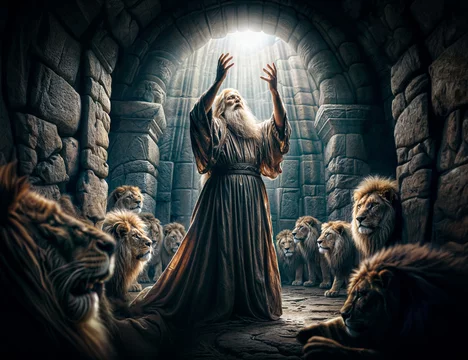Most people today mistakenly believe that the terms “Jews” (Yahood) and “Bani Israel” (Children of Israel) are synonymous. In truth, they refer to two different historical and theological identities. This confusion persists across generations, even among Muslims. Let’s dive into the history, as explained through the Qur’an, Hadith, and authentic historical sources, to understand the real difference between them.
The Origins: From Prophet Ibrahim (AS) to Bani Israel
The story begins over 4000 years ago with Prophet Ibrahim (Abraham, peace be upon him), who settled in the region known then as Canaan (modern-day Palestine). He had two sons:
Ismail (Ishmael, AS) – who settled in Mecca
Ishaq (Isaac, AS) – who remained in Palestine with his father
Allah promised Prophet Ibrahim (AS) that both his sons would father great nations:
“Indeed, I will make you a leader for the people.” [Surah Al-Baqarah : Verse 124]
The Qur’an and Bible both affirm this divine covenant. Ismail (AS) became the forefather of the Arab nation and ultimately Prophet Muhammad (SAW), while Ishaq (AS)’s lineage led to Yaqub (Jacob, AS), who was also called Israel.
Who Were Bani Israel?
Yaqub (AS) had 12 sons, and their descendants were called Bani Israel literally, Children of Israel.
These 12 sons formed 12 tribes, and due to famine, they migrated to Egypt during the era of Prophet Yusuf (Joseph, AS), who had become the prime minister of Egypt:
“He [Yusuf] settled his parents upon the throne… and raised them to a high rank.”
[Surah Yusuf : Verse 100]
Over time, Bani Israel flourished in Egypt across all sectors agriculture, trade, administration becoming a powerful community, much like Jewish influence in modern economies. However, their rising strength provoked fear in the Egyptian Pharaohs, who gradually enslaved them.
Musa (AS) and the Exodus:-
Allah sent Prophet Musa (Moses, PBUH) from the tribe of Levi, one of the 12 tribes, to liberate them. After confronting Pharaoh, he led Bani Israel out of Egypt in the great Exodus, a story mentioned repeatedly in the Qur’an:
“And [recall] when We saved you from Pharaoh’s people, who were afflicting you with the worst torment…” [Surah Al-Baqarah : Verse 49]
But Bani Israel, though physically free, were mentally enslaved. When Musa (PBUH) ordered them to conquer Jerusalem, they refused:
“You and your Lord go and fight; indeed, we will remain right here.” [Surah Al-Ma’idah : Verse 24]
Due to this disobedience, Allah punished them to wander in the desert for 40 years, until the old generation perished and a new generation with a free mindset emerged.
Rise of the Israelite Kingdom: Dawood (AS) and Sulaiman (AS)
Eventually, the new generation under Yusha ibn Nun (Joshua, PBUH) conquered Jerusalem. Later, Allah appointed Dawood (David, PBUH) from the tribe of Judah (Yahuda) as king. His son, Sulaiman (Solomon, PBUH), established a mighty empire and built the first temple (Bayt al-Maqdis) in Jerusalem.
“And to David We gave Solomon. An excellent servant, indeed he was one repeatedly turning to Allah.” [Surah Sad : Verse 30]
The Great Split: From Bani Israel to Yahood (Jews)
After Sulaiman (AS)’s death, his son Rehoboam failed to unite the tribes. The kingdom split:
10 tribes formed the Kingdom of Israel
2 tribes — Yahuda (Judah) and Binyamin (Benjamin) — formed the Kingdom of Judah
This was the birth of the term “Yahood” (Jews). Over time, the term “Jew” referred only to descendants of the tribe of Judah, not the entire Bani Israel.
The Disappearance of the 10 Tribes
The Neo-Assyrian Empire invaded the Kingdom of Israel, destroyed it, and exiled the 10 tribes, who were scattered and assimilated. Only Judah and Benjamin remained, preserving the religious traditions.
Interestingly, many groups including the Pashtuns (Pathans) claim descent from the 10 lost tribes, a claim also acknowledged by some Jewish scholars. However, this remains unverified.
Babylonian Exile and Destruction of the First Temple
Eventually, Nebuchadnezzar of Babylon attacked Judah, destroyed the temple built by Sulaiman (PBUH), and exiled the Jews to Babylon. After 70 years, Cyrus the Great of Persia allowed them to return and rebuild the temple.
Final Destruction by the Romans
Nearly 600 years later, the Roman Empire destroyed the temple again during the Jewish-Roman wars. Since then, it has never been rebuilt. Today, only a portion the Western Wall remains, considered sacred by Jews worldwide.
Why Don’t Jews Rebuild the Temple Today?
Despite their wealth and power, Jews do not rebuild the temple because of a religious belief that their Messiah () will return and:
1. Unite all tribes of Bani Israel, even the lost 10
2. Rebuild the third and final temple
3. Establish the final Kingdom of Israel, like Sulaiman (AS)
This belief is so strong that they await their Messiah ( Dajjal ) before taking any such action.
Key Takeaway: Jews ≠ Bani Israel
In conclusion:
* Bani Israel refers to all 12 tribes descended from Yaqub (PBUH)
* Yahood (Jews) refers only to the descendants of Judah and Benjamin
Therefore, not all Bani Israel are Jews, and not all Jews are representative of Bani Israel as a whole.
Final Thoughts
The Qur’an repeatedly discusses the history of Bani Israel — their blessings, their disobedience, and their role in the divine narrative. Understanding their distinction from the modern concept of “Jews” is crucial for Muslims seeking historical and scriptural clarity.
“O Children of Israel, remember My favor which I have bestowed upon you [Surah Al-Baqarah : Verse 40]
Love Deep Islamic History Like This?
If you find posts like these inspiring, eye-opening, and faith-strengthening, then don’t leave without taking the next step!
🔔 stay connected with authentic Islamic knowledge, untold historical truths, and Quranic reflections that bring the past to life in today’s world.
📖 Every post is backed by Qur’an, Hadith, and historical evidence, written with love for seekers of truth.
👉 Subscribe our growing Channel of believers who crave more than just information—they seek understanding.
Click “Subscribe” or follow us today—because the Ummah needs thinkers like you.


